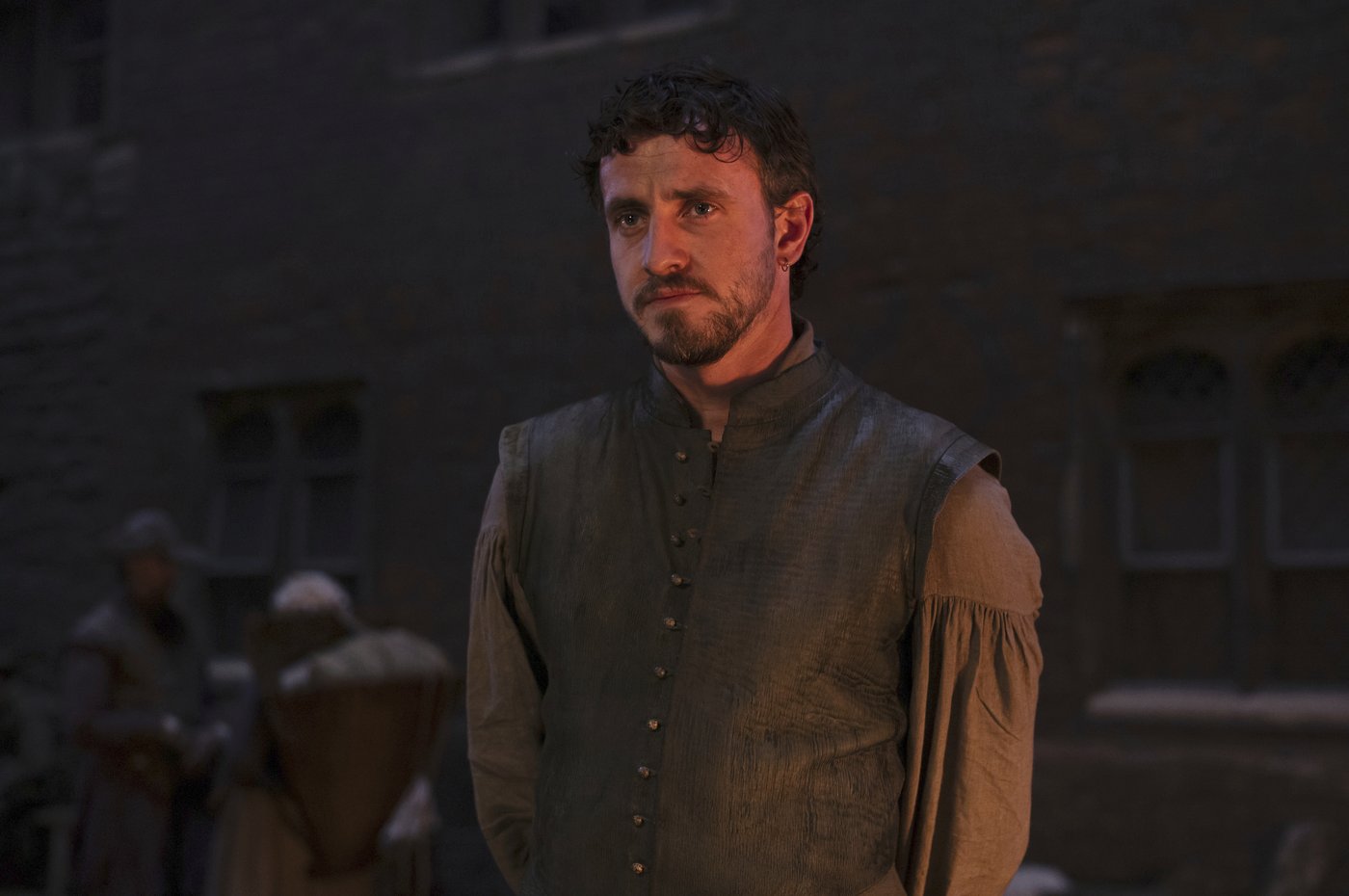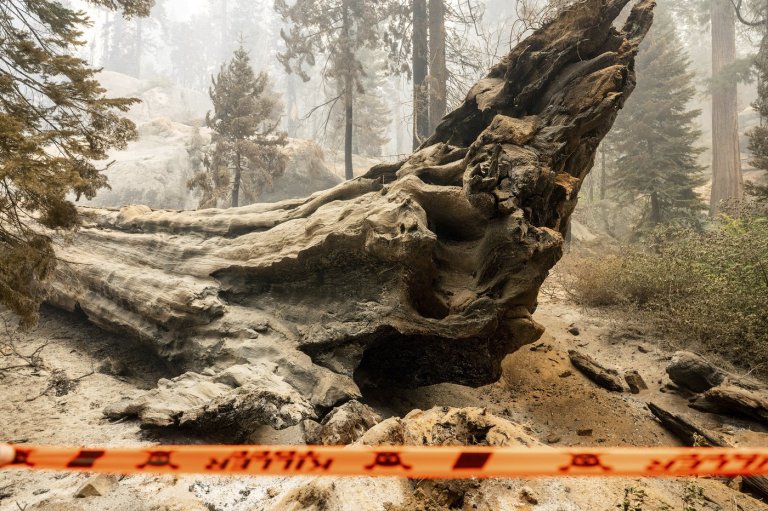
In Chloé Zhao’s ‘Hamnet,’ something emotional this way comes
TORONTO (AP) — “Why are you making me cry?”
It’s an ironic question for Chloé Zhao, of all people, to be asking the morning after premiering “Hamnet” at the Toronto International Film Festival. On the festival circuit this fall, no film has spawned more of an outpouring of emotion than “Hamnet,” a speculative drama about William Shakespeare, his wife, Agnes, and the death of their 11-year-old son.
Since first playing at the Telluride Festival, Zhao’s adaptation of Maggie O’Farrell’s acclaimed 2020 novel has left a trail of weeping moviegoers, moved to tears by its tale of love, grief and art. The fall festivals bring all sorts of harbingers for the movie season to come, but one of the clearest portents this year is that “Hamnet” will wreck you.
“When you love something so much — I’m not a mother, I haven’t had children, I’d like to — but I imagine when you love something so much, the greatest love you can give is to let go,” Zhao says. “I got a glimpse of what that feels like.”
It’s probably a sign of the power of “Hamnet” that, even for its director, it quickly stirs up the threat of tears. At its TIFF premiere, Zhao led the audience in a breathing exercise (“completely optional,” she announced) to honor everyone’s collective presence.
“I haven’t really felt this way about any of my other films,” says Zhao, the Oscar-winning director of “Nomadland,”“The Rider” and “Eternals.” “But I am older now. I’m in my 40s. The other films came out in my 30s.”
“Hamnet,” which Focus Features will release in theaters Nov. 27, stars Paul Mescal as “Will” Shakespeare and Jessie Buckley as Agnes. The majority of the film, which Zhao wrote with O’Farrell, is set far away from London, the Globe Theatre and the world of Shakespeare’s plays. In a rugged countryside — this is a deeply woodsy and earthy movie — we see the two meet, fall in love and begin a family with three children, including the twins Judith (Olivia Lynes) and Hamnet (Jacobi Jupe).
An opening caption informs us that, in 17th century England, the names Hamnet and Hamlet were interchangeable. When tragedy befalls the Shakespeares, they handle their grief in separate and increasingly divided ways. “Hamnet,” leading up to the first performance of “Hamlet,” reaches toward a climax of overwhelming intensity, where art — and not just any art but the finest play ever written — opens a pathway for understanding between not just two souls in anguish, but many others, too.
“When your actors and cast and crew are allowed to express and be in their full range of emotion, the camera does something miraculous,” Zhao says. “Whatever this invention is, maybe it does capture the soul, maybe Indigenous people should be afraid of it. And it transmits energy to the audience. It’s impossible for me not to be present and record what is happening at that time for this group of people swimming in the river together.”
“It’s never my vision,” she adds. “Something is trying to speak through us. How we can know? We’re only 30, 40, 50 years old. What do we know? But we can become a conduit for something much older to come through.”
Mescal and Buckley co-starred in Maggie Gyllenhaal’s “The Lost Daughter” but didn’t share scenes in it. Each gives a performance in “Hamnet” likely to stand as among their most impassioned. Their experience filming with Zhao, they said, was one of the most invigorating of their careers.
“I think she’s somebody, when we’re all dead, will go: This was a pillar of culture at that time,” says Buckley. “She’s not trying to make every perfect decision. She’s so instinctual and sensitive. I think she’s one of the great, great filmmakers. She belongs with, like, Visconti and Wong Kar-wai.”
Zhao’s earlier films have been characterized by their naturalism. That comes through not just with the wide-open, rural landscapes she’s been drawn to but the non-professional actors who have populated her films. In “Hamnet” a sea of extras contributes mightily to a moment of communal catharsis.
As powerful as that concluding scene is, it wasn’t the scripted ending until a week before shooting. Zhao suspected their original plans weren’t quite right, were too ambiguous. “As we were filming,” she says, “we started to see how big the emotions had gotten.”
As Zhao searched for her ending, a few inspirations helped. One was a black-and-white photograph producer Nicolas Gonda had taken of Jupe. The other was a song Buckley sent her: Max Richter’s “This Bitter Earth/On the Nature of Daylight.” Zhao, nursing her own heartache from a personal loss, felt transformed.
“On my way to work, I listened to the song,” she says. “And my own pain and exhaustion lifted. I found myself reaching my hand out toward the window. I think I was trying to touch the rain.”
“Hamnet” could have been a movie about Shakespeare’s genius talent, one that we’d watch with awe and admiration. Instead, it’s a movie filled with misjudgments and unarticulated pains, where a play becomes an outreached arm, and a bridge between trauma and survival.
Late in filming, a then-distraught Zhao, looking for a quiet space to let it out, wandered for the first time onto the set for Shakespeare’s attic in London, where he goes to write in the film. It’s a small, disheveled space with not much more than a desk by the window and a bed.
“I got into the bed and lied there. It reminded me of my own life, living by yourself in hotel rooms, like a traveling circus. I just lost it,” Zhao says. “But I also felt how lucky I am. If I didn’t have those tools to tell a story, I wouldn’t have survived.”
Join the Conversation!
Want to share your thoughts, add context, or connect with others in your community?
You must be logged in to post a comment.


















